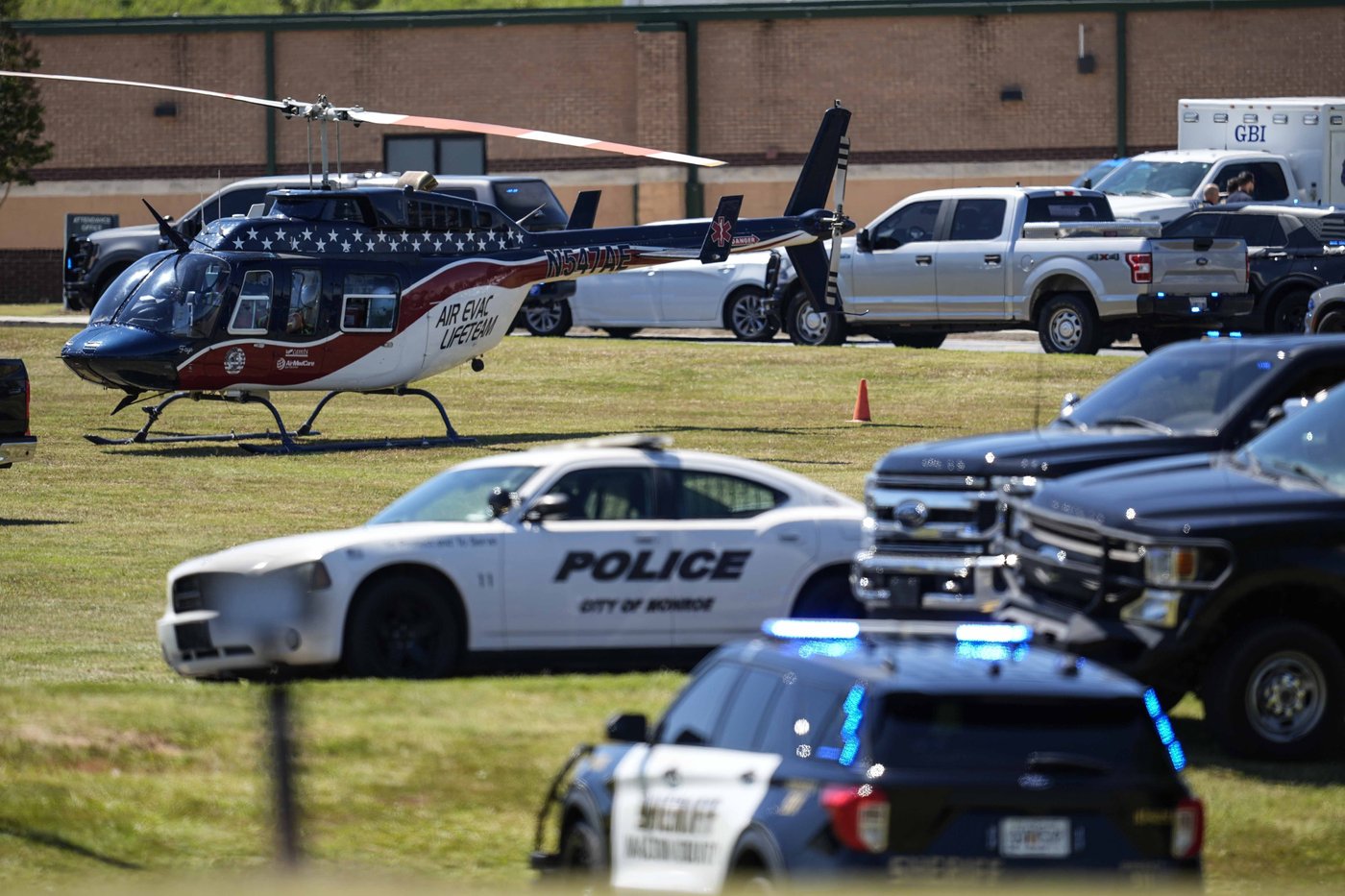Elevate your local knowledge
Sign up for the iNFOnews newsletter today!

ATLANTA (AP) — After four people were shot and killed at Apalachee High School in Georgia in September, many people believe officials failed to see warning signs that the 14-year-old accused of the shooting was displaying.
That conclusion could drive Georgia lawmakers, who will convene for their annual legislative session Monday under intense pressure to show they are acting to prevent future shootings, to order agencies to broadly share education, child welfare and juvenile court records.
The hope would be that such data will help officials better assess threats that students will hurt themselves or others. State House Speaker Jon Burns of Newington and state schools Superintendent Richard Woods, both elected Republicans, are among those backing more information sharing.
“How do we share that with our sister agencies so we can have a red flag system, that for kids or situations that we need to know about, that needs to be looked at?” Woods asked at a forum on school safety on Wednesday.
But privacy advocates warn that such a data repository could be invasive, and point to findings by federal law enforcement agencies that it’s impossible to use such records to profile students likely to commit violence. Amelia Vance, president of the Public Interest Privacy Center, says prevention has to be based on what students are actually doing, like making threats or taking action to acquire a weapon.

“You will overwhelmingly get false flags if you seek to profile students,” Vance said. “And those false flags will often be based on discriminatory information — students with disabilities. students who have disproportionate or any interactions with social services.”
In addition to information sharing, there are calls in Georgia for more money for police officers in schools, more money for school counselors, social workers and mental health counseling, and for mobile panic buttons and technology to detect guns. Georgia Democrats are pushing efforts to limit children’s access to guns, but Republicans refuse to limit gun rights.
Colt Gray, who was 14 when officials said he brought his semiautomatic rifle to Apalachee High School, had an earlier encounter with sheriff’s deputies in a neighboring county after the FBI got a tip about a threat of violence in a video gaming forum. He skipped the entirety of his eight-grade year, officials have said, and had a panic attack in a counselor’s office days before the shooting.
School officials and relatives made a halting attempt to admit Gray to inpatient psychiatric treatment, investigators have said. But it may have been sabotaged by the poor relationship between his mother and father.
Barrow County Sheriff Jud Smith is among those who want police and schools to do more to share information

“I hope in the future there are things put in place that we make sure to check off some boxes or a report gets filed with the state that this person is a person of interest,” Smith told WDUN-AM in September.
The Georgia plan could mirror efforts in Florida, Texas and elsewhere. Georgia could also join at least 14 other states that require school-based teams to meet and formally assess threats.
The Florida database, though, didn’t immediately live up to its promises, because most people couldn’t see all the information it held. That’s in part because federal laws limit outsider access to school and health records without a parent’s permission.
There could be some lower-hanging fruit in Georgia. Right now, when a student changes school districts, the old school is mandated to send student records to the new school within 30 days. Most officials agree that in an electronic age that is far too long, and that officials at the new school need prompt information to meet a student’s needs.
The other half of the equation could be threat assessment. Georgia homeland security officials are already teaching school districts how to create threat assessment teams. Linda Criblez, the deputy director of the Georgia Emergency Management and Homeland Security Agency, said Wednesday that the program is “equipping schools with understanding of what a true threat looks like so that they know when to escalate the situation and get additional help.”
But she also said it’s teaching schools that sometimes a student is not a threat to others and just needs help.
That’s where spending more on school counselors, school social workers and mental health workers could become a factor. Education advocates have long pushed Georgia to hire more counselors. The American School Counselor Association recommends one counselor for every 250 students, while the ratio in Georgia was 378 students per counselor last year.
Georgia’s mental health agency also funds a program called Apex that pays for mental health services for students. That program is currently voluntary and only serves about a third of Georgia’s schools.
“I would love to have a licensed counselor in every single school,” said Kasey Ross, regional youth services director for Highland Rivers Behavioral Health. “I think that would make a huge impact.”
But even with more money, a workforce shortage could make it hard to quickly staff up school counselors or mental health clinicians. And that demand for more funding could compete with the desire of others to spend more on school security. The state budget that began July 1 includes more than $100 million in ongoing funding for school security, enough to provide $47,000 a year to each public school for safety. But many officials say that’s not enough to pay the full cost of one security officer for each school.
Want to share your thoughts, add context, or connect with others in your community?
You must be logged in to post a comment.